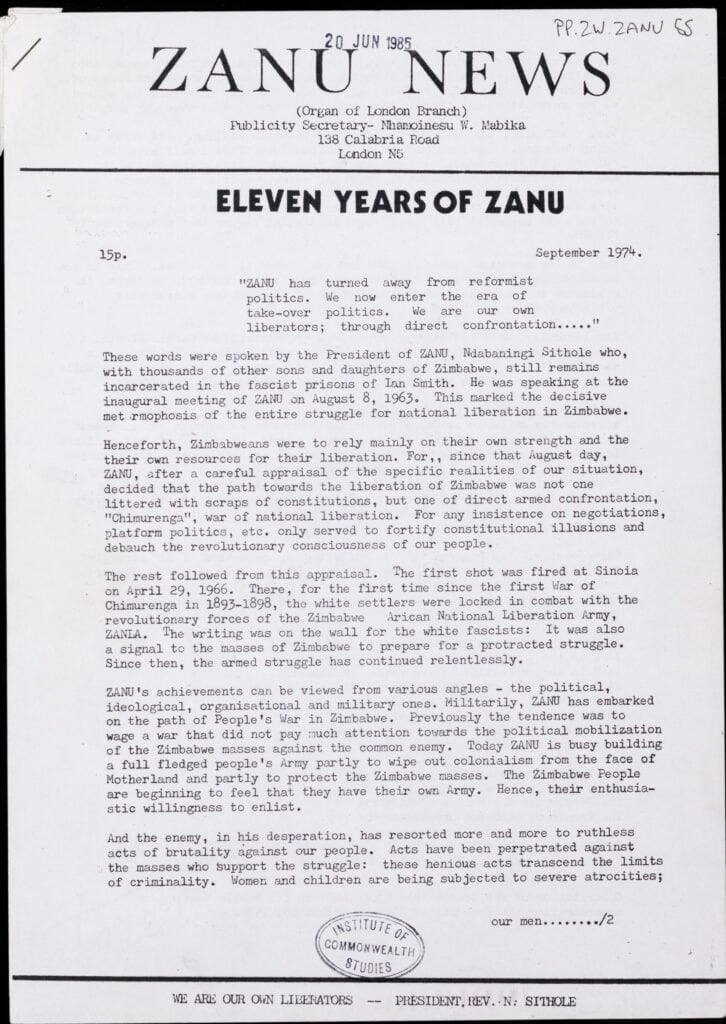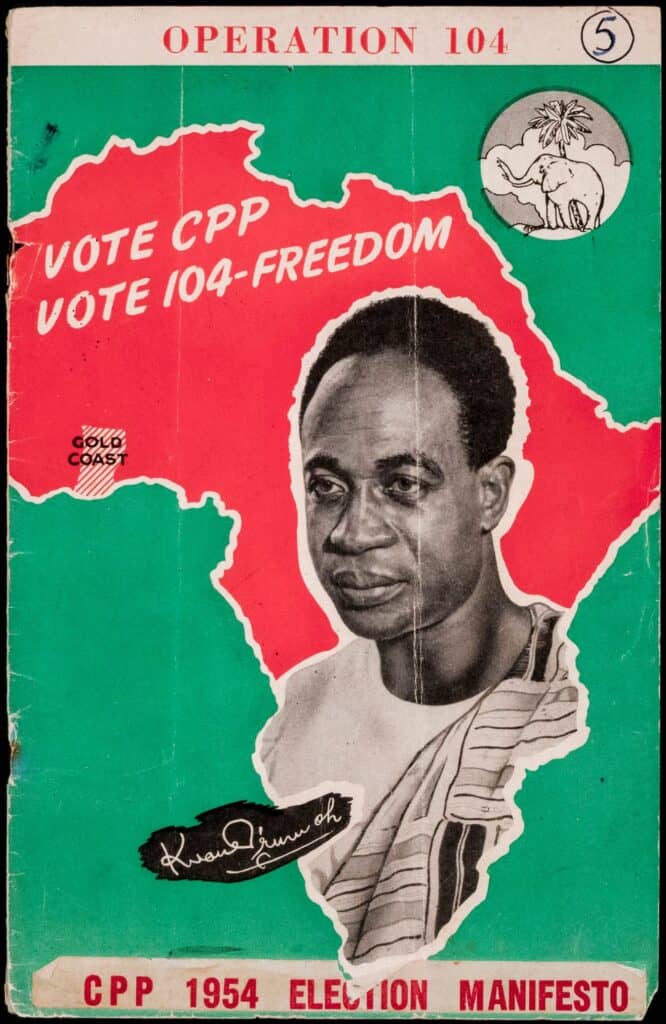│By Louis Venter, Gale Ambassador at the University of the Free State│
If you ask any seasoned historian what makes historical research unique, they will emphasise the crucial role of primary sources, which define and distinguish history from other forms of academic writing. In an ever-digitising world, historians can now access digital scans of genuine archival material from anywhere, eliminating the need to travel to distant archives, and making research more efficient.
Bringing together primary sources from multiple archives can enhance one’s research, and Gale Primary Sources offers two key complementary digital archives that can be used in tandem to study colonialism – Nineteenth Century Collections Online: Europe and Africa, Colonialism and Culture and Decolonization: Politics and Independence in Former Colonial and Commonwealth Territories.
Understanding Primary Sources

As students of history, we are often confronted with the question, “where do I begin my research?”. Whilst secondary sources (published books, journal articles, dissertations, theses, etc.) may be a good start, they are not without their drawbacks – primarily that they offer an interpretation and don’t directly allow historians to engage with the raw data offered by primary sources. But what constitutes a primary source? Simply, they are contemporary documents that are often kept within an archive.
Although primary sources are important across all subgenres of history, what sources are used can differ, and using a wide array of primary sources is beneficial and necessary for comprehensive research. When focusing on colonisation, some primary sources that are used are: correspondence, colonial government reports, maps, newspaper articles, and many more. Both Nineteenth Century Collections Online: Europe and Africa and Decolonization offer these types of archival material in spades, with the added benefit of being in a digital format for ease of access.
NCCO: Europe and Africa
Nineteenth Century Collections Online: Europe and Africa, Colonialism and Culture is a cutting-edge digital archive focused on European colonisation in Africa. It features many high-quality primary sources in both Western and non-Western languages unique to the archive, such as correspondence, maps, colonial newspapers, colonial government records, U.S. consulate documents, and missionary and church documents, specialising in expeditions, military history, missionary work, and economic and political imperialism.
The archive is an excellent resource for those who specialise in the impact of the 1884/5 Berlin Conference and the New Imperial-age (1870s to 1910s) on the African continent, nineteenth- and early-twentieth-century South African history, the rivalries between European colonial powers, colonial law, the history of Christianity in Africa, and non-European immigration to Africa. Using Gale’s state-of-the-art technology, prospective researchers will be able to conduct research at all levels, make use of the integrated citation tools, utilise the advanced search tool (“Term Frequency” and “Topic Finder”) to discover context and uncover previously-hidden connections.

Decolonization
Decolonization: Politics and Independence in Former Colonial and Commonwealth Territories is a digital archive that focuses on twentieth-century colonialism across the globe (1906-1997), not only in Africa. Collections unique to the archive include a series on political parties, pressure groups, and labour movements in former British colonies across Africa, Asia, Oceania, and the Western Hemisphere. This collection would be most useful to academics focused on the histories of Australia, New Zealand, India, South Africa, and Canada, throughout the twentieth century.
Decolonization allows researchers to engage with and understand topics surrounding domestic unrest and politics within colonies, the impact of prominent anti-colonial leaders, labour movements, anti-colonial movements and their connections to other such movements around the world, colonial economies, trending social issues (e.g. women’s suffrage), and the technicalities behind independence (such as drafting of constitutions and elections).
Complementary Aspects

Although Decolonization focuses on the global twentieth-century history of the Commonwealth, its archives can be used to complement those found in Nineteenth Century Collections Online: Europe and Africa by providing historians of colonialism in Africa with an expanded history – one that goes beyond the scope of the nineteenth century, and vice versa. The obvious chronological flow that both databases provide cannot be ignored, with Nineteenth Century Collections Online: Europe and Africa entailing the rise and implementation of colonialism from the mid-nineteenth to the early-twentieth centuries, and Decolonization focusing on the maintenance and eventual downfall of colonialism from the early- to late-twentieth century.
Nineteenth Century Collections Online: Europe and Africa’s focus on colonialism can be complemented with Decolonization’s archives on British rule in Africa. One need not be restricted to a general view of the colonial phenomena, since both databases can be used to study colonialism in Africa at a micro-scale, by focusing on archives concerning a specific African country and ex-British colony (e.g. South Africa, Zimbabwe, Kenya, etc). Using primary sources from both databases during research on colonialism in Africa has many benefits, including: offering different perspectives on similar events, filling the gaps in one database with information from the other, and cross-referencing to verify and enrich information.
In our digital age, satisfying the need for primary sources in historical writing is easier than ever with the accessibility provided by digital archives. Nineteenth Century Collections Online: Europe and Africa and Decolonization should both be the first stop for any historian focusing on the topic of colonialism in Africa. Using these together provides a comprehensive view of colonialism stretching from the mid-nineteenth to the late-twentieth centuries, enhances research by providing multiple perspectives, filling informational gaps, and allows for cross-referencing.
If you enjoyed reading about Gale’s archives and colonialism, check out these posts:
- Celebrating South Africa’s Independence “Nkosi Sikelel’ iAfrika”
- Decolonization: Politics and Independence in Former Colonial and Commonwealth Territories
- Teaching Primary Source Research Skills – Discovering New Points of View about European and Colonised Women Using Gale’s New Archive
Blog post image citation: Personal files from the Second World War in the non-public archives of the International Committee of the Red Cross near its Geneva headquarters at Satigny, Switzerland. Credit: Roman Deckert, Wikimedia Commons. https://commons.wikimedia.org/wiki/File:CICR-ICRC-Archives-Satigny-WWII-PersonalFiles_RomanDeckert09062020.jpg



